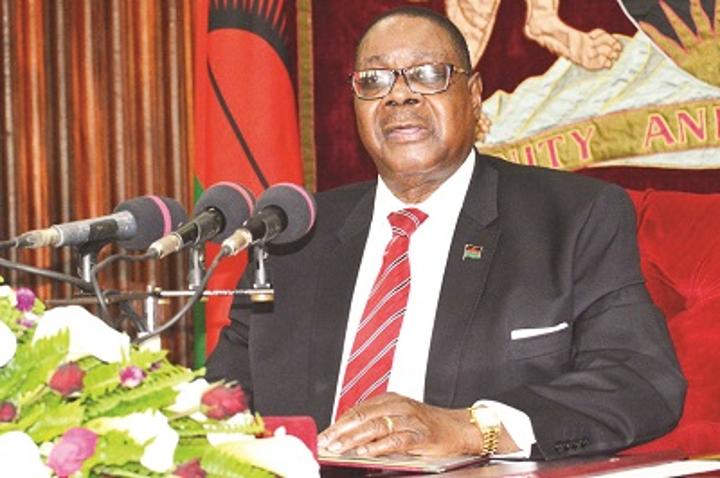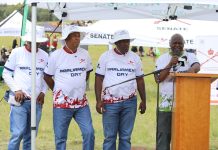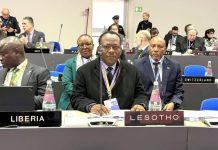Africa-Press – Lesotho. With other African states representatives, trade and business players from Lesotho committed themselves to emancipating businesswomen and small business holders.
Private Sector Foundation of Lesotho Chief Executive Officer, Mr Thabo Qhesi said he attended the Southern Africa Regional Integration Stakeholder Forum co-hosted by the United Nations Economic Commission for Africa, southern Africa Office (UNECASA), the African Union Southern Africa Regional Office (AU-SARO) and the Africa Business Group (ABG) for three days from 11 June 2018 in Malawi.
Themed; ‘The Private Sector and Regional Integration in Southern Africa: Accelerating Opportunities for Investments and Growth, it dealt on comprehensive, integrated and inclusive platform for intense policy and program development focused dialogue among a broad range of constituencies from the private sector, Regional Economic Communities, member states,’ financial institutions and development partners.
Implementation of strategies for harnessing the potential of the private sector in the acceleration of regional integration, and specifically regional market development, in Southern Africa was also discussed.
Organizer’s statement reads: “The essence is on how the private sector can be the driver and major beneficiary of the regional integration process in Southern Africa through increased opportunities for investments, profits, and growth in the region.
”
Qhesi to the media said it was recommended that clear policies for small business holders be provided and the private sector be involved in policy formulation and implementation. He stressed: “Even if governments can talk, but it is only the private sector who can walk the talk. ”
He said while countries like Botswana and South Africa have provisions to accommodate financially disadvantaged natives in huge business ventures, a whole lot of others is yet to behave likewise.
Public Private Partnerships (PPP) were cause for concern. He said it was recommended that natives need be empowered to partake in PPP cakes. Still, he said it was stressed that governments should not compromise citizenry basic livelihood needs like health care and water in the name of PPP.
Organizer’s statement recommend governments to implement indigenization policies with due consideration to effective strategic planning, issues of quality, standard and productivity. It cautioned: “Indigenization policies should not be haphazard, impulsive, and promote inefficiency, cronyism and mediocrity. ”
In Common Market for Eastern and Southern Africa Business Council chairperson, Amany Asfour asked governments within the Southern Africa Region to consider providing the private sector with conducive environment where it could work to achieve regional integration agenda.
However, Asfour said lack of information within the region was one of the challenges that affected free trade in the area. She remarked: “Lack of information amongst the private sector is one of the challenges that affect regional integration.
In view of this, we need to work together by among other things sharing information and also promoting value addition. ” Offering the keynote speech when opening the forum, Malawian President Peter Mutharika said his country is set to turn itself into an investment haven of Africa where investors can explore all opportunities with ease.
The Malawian leader described the country as a small but great African nation, and a paradox of a rich country with poor people but full of investment opportunities.
He charmed: “We want Malawi to give you the best return to investment. If Africa is above the global average of return to investment, we want Malawi to be above Africa: We are set to make Malawi an investment haven of Africa.”






